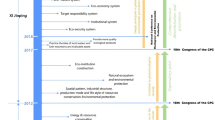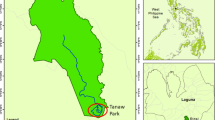Abstract
The interest of China in the Arctic Region is by now unveiled and evident to the totality of the stakeholders dealing with Arctic issues. Although such interest is quite recent (it traces back to the beginning of the new millennium), China has clear idea about the potentialities of the Arctic Region in terms of natural resources as well as regarding the profitability of shipping through the Northern Sea Route. In this context, the admission of China in the Arctic Council with the role of observer should be considered as a shift in the way in which Arctic issues are perceived by Arctic countries: from a regional dimension to a global one. Having the possibility to seat in the Council will give to China the opportunity to play a key role in participating in the definition of Arctic-related policies in the near future. Anyhow, if China wants to play a real key-role in the Arctic, while acting as a responsible global power, it must address some issues still unsolved in its national framework, precisely: recognising the existence of indigenous people within its national borders and ensuring them the enjoyment of their rights (in so doing, China will be ready to recognise the particular features and needs of indigenous people living in the Arctic) and defining a comprehensive Arctic strategy in which sustainable development is put at the top of the agenda.
Similar content being viewed by others
Notes
Whitnety Lackenbauer & James Manicom, East Asian States, the Arctic Council and International Relations in the Arctic 2–3 (Centre for International Governance Innovation, Policy Brief No. 26, Apr. 2013).
Id., at 3.
Kaisa Pulkkinen, The Arctic Council and the Northeast Asian Observers, The Swedish Institute of International Affairs, November 2013, at 2.
Id.
Id.
Id., at 3.
Id.
Marc Lanteigne, China’s Emerging Arctic Strategies: Economics and Institutions 5, 33 (Institute of International Affairs, Occasional Papers, 2014).
Id., at 34.
Linda Jakobson & Jingchao Peng, China’s Arctic Aspirations 22 (Stockholm International Peace Research Institute, Policy Paper No. 34, Nov. 2012).
Id., at III.
Lanteigne, supra note 8, at 34–35.
Id. 36.
Jakobson & Peng, supra note 10, at 38.
Lanteigne, supra note 8, at 38.
Id. 30.
Jakobson & Peng, supra note 10, at 15.
Id.18.
Id. 19.
National Report on Sustainable Development 2, The People's Republic of China, Jun. 2012.
Report on China’s Implementation of the Millennium Development Goals (2000–2015) 68, UNDP, Jul. 2015.
National Report on Sustainable Development, supra note 20, at 14.
Martinez Cobo, Study on the Problem of Discrimination against Indigenous Populations, UN doc. E/CN.4/Sub.2/1986/7/Add.4, para. 379.
Kamrul Hossain & Hiroshi Maruyama, Japan’s Admission to the Arctic Council and Commitment to the Rights of its Indigenous Ainu People 6:1, POLAR J., 169, 170–171 (2016).
CECILIE MIKKELSEN & DIANA VINDING, THE INDIGENOUS WORLD 2016, 239 (2016).
Id.
Id.
MIKKELSEN & VINDING, supra note 25, at 244–245.
Author information
Authors and Affiliations
Corresponding author
Additional information
Giuseppe Amatulli PhD Candidate, Researcher.
Rights and permissions
About this article
Cite this article
Amatulli, G. The role of China in the Arctic: challenges and opportunities for a sustainable development of the region. Jindal Global Law Review 8, 103–110 (2017). https://doi.org/10.1007/s41020-017-0042-2
Published:
Issue Date:
DOI: https://doi.org/10.1007/s41020-017-0042-2




